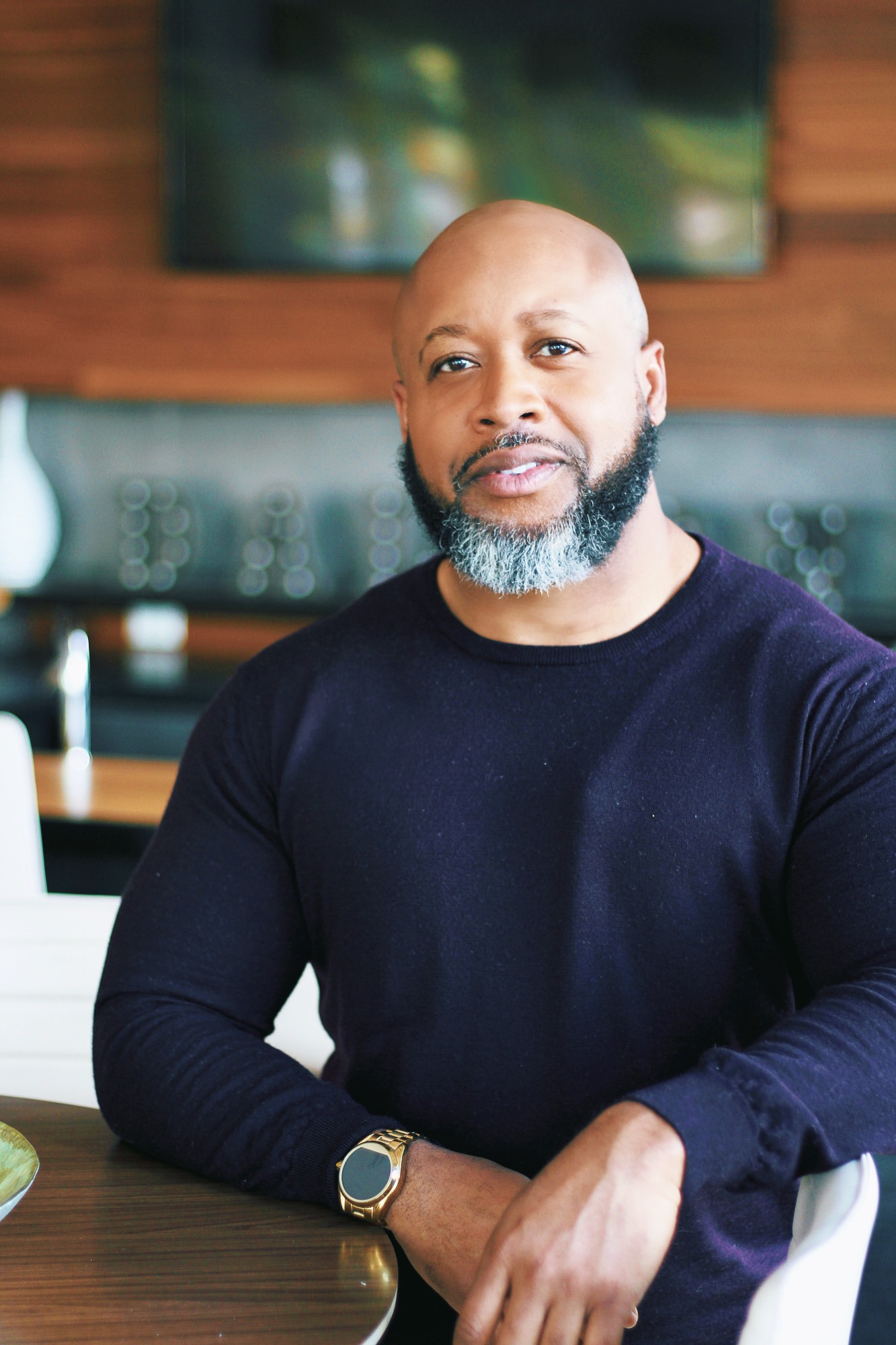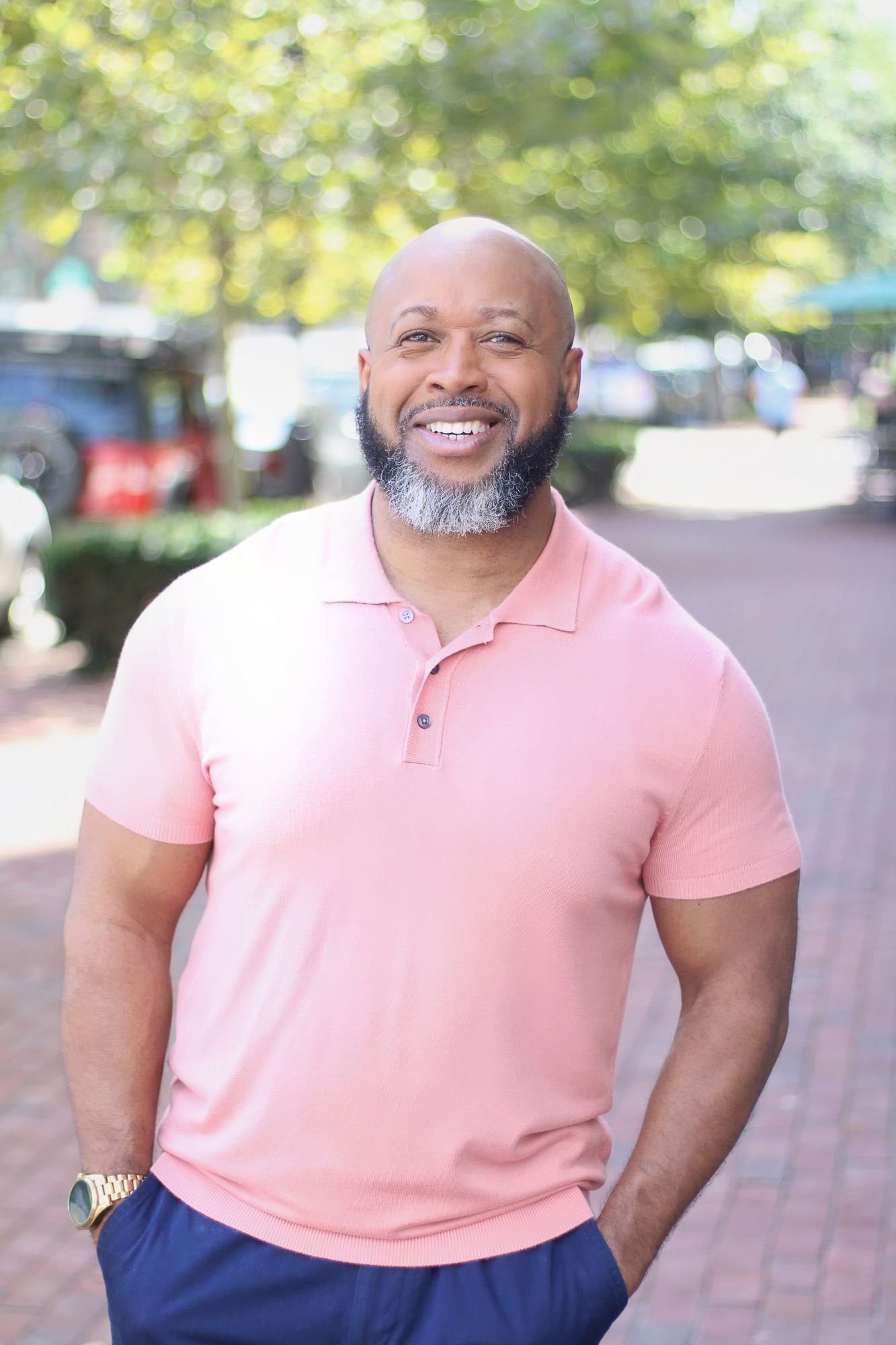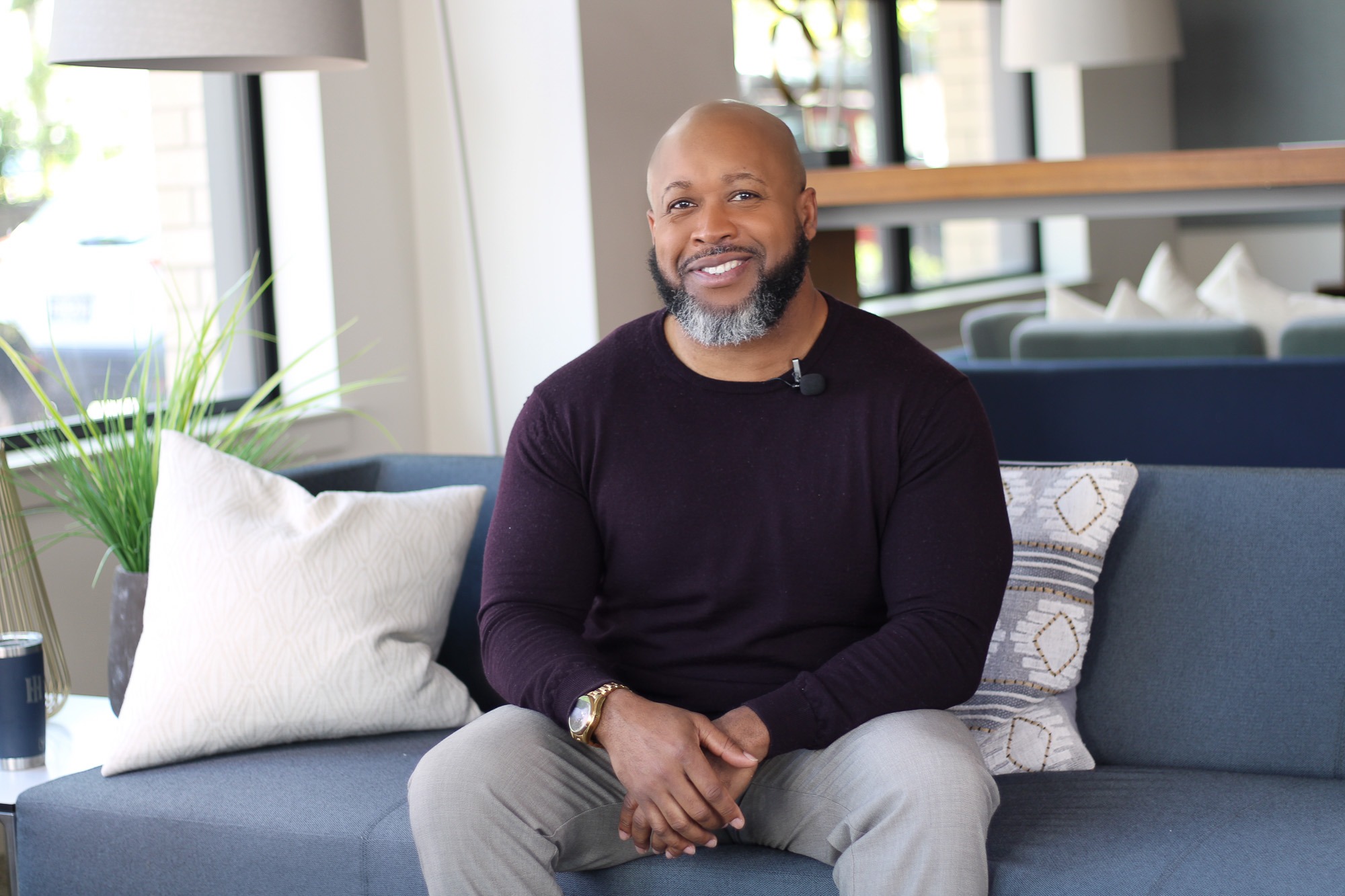(AURN News) — For many Black men, healing starts in places like the barbershop, the church basement or a trusted community circle — spaces where the masks can come off and grief can finally be spoken out loud.
Cory George, a cultural trauma expert and author who has appeared on A&E’s “Digital Addiction” and OWN’s “Iyanla, Fix My Life,” says those spaces matter because they offer safety, understanding and a shared language. He received the 2023 Presidential Lifetime Achievement Award for Volunteerism.
“It’s in the barbershop where we can use our lingo, our language, and it allows us to be somewhat vulnerable in a larger room of other men that may be able to hold more compassion for us, and we don’t have to wear as many of those disguises,” George said.


Cory George, cultural trauma expert and author, says safe spaces like barbershops and community circles help Black men process grief and find healing.(Photos courtesy of Cory George)
From the legacy of slavery to modern-day racial violence, he says the ways Black men are expected to grieve remain deeply shaped by history. “What I found through my experience and through working with Black men is that grief is often experienced in a more suppressive way,” he said.
“The goal is to move forward, or the goal is to take care of everyone else who is grieving. Either their feelings are not as recognized as a female’s feelings, and then we are also asked to move forward but to take care of everyone else, but not ourselves.”
The constant exposure to racial violence on TV and social media makes that even harder. “Every time you see something that you feel a personal connection to, it’s almost taking the bandage off completely all over again,” George said. “So it restarts a process that is already a dysfunctional process … We also have this feeling, well, then things may not change. So let me just get used to grieving all the time.”
Beyond death, George points to what he calls “disenfranchised grief,” including the loss of rights or opportunities that others may not understand. “It’s harder for us to also grieve, because it can feel like it’s pushed toward the side,” he said.
George believes grief can be a source of strength if it’s recognized and honored.
“Once we understand that it is a natural process, we then are able to actually normalize it,” he said. “For me, I lost my mom, so sometimes I connect with her by going to a thrift store … It’s about honoring that pain in a way that is more of a celebration of what that life meant.”
Faith and community, George added, remain central in the lives of many Black men. “If I’m going back to my hometown and I’m going into an area where they know me, I know them, there’s less of a guard up,” he said. “There is a large number — 77 percent — of Black people who rely on faith during a hard time.”
(Photos courtesy Cory George)
Click play to listen to the AURN News report from Jamie Jackson:












